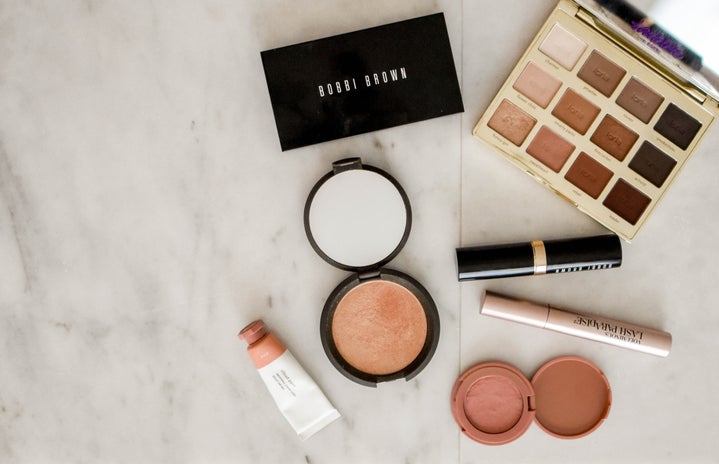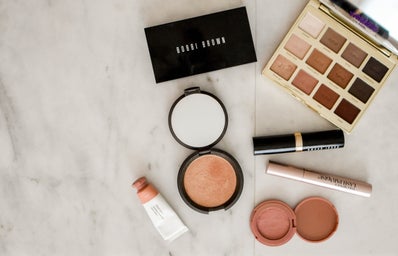With everything going on in life, you don’t always have the time to find out what’s best for you or your skin. Nobody blames you for it, you’re a busy person of course. So what would be the easiest thing for you to use in regard to preserving products? You can’t always keep an eye on what belongs in the fridge, or what’s healthy for your skin with preservatives added to the products. That being said, it can also be difficult to understand what’s good for your skin, especially with conditions such as cystic acne or rosacea being so common. However, it doesn’t stop you from trying to help yourself with softer products. Sometimes it’s worth making time to find out what’s best for your skin.
Photo via Lush
Some of you may be a little confused as to what exactly self-preservation is in relation to beauty products. It can also be found in some foods, but it basically means that you can extend the shelf life of a product or prevent the products from gaining unwanted bacteria within that extended time, thus hopefully preventing it from going bad. Depending on the preservative, it will affect the product differently. Methylparaben notably creates holes in the bacteria cell’s membranes or walls. Others prevent microbes from forming cell walls and self-reproducing, as does benzyl alcohol in essential oils. Self-preservation can also help with balancing out the ingredients within the product. The only issue with them is they can be harmful once down the drain.
Photo via Lush
This is where I’m going to have to call favoritism to specific brands and preservatives. There are all-natural preservatives out there that do help with your skin, like sea salt. Now sea salt may not be plant-based, but it’s still created by nature. The volcanic ruptures that have been caused in the sea, until now, have all helped in the production of sea salt. Another favorite of mine is honey, its soothing properties really help with moisturization, and the cool part about honey is that it never goes bad.
When I refer to brand favorites, it might get slightly pricey. However, it’s thankfully not an obscene amount of money. I’m talking about Lush- they pride themselves on having items that have preservatives but they aren’t in the slightest bit toxic after washing them away. About 65-67 percent of their items are self-preservable and as I said, they make sure their products do not leave a toxic trace behind. There is specifically an article on the Lush website called “The Self-Preserving Glossary” that helps you figure out what each item is for.
Photo via Lush
When finally choosing the self-preserving products, there are a few things you’ll always try to look for when searching for the right products for you. A basic rule is to be on the lookout for what balances your skin.
Sometimes this can range from needing sunscreen and getting enough zinc, blocking out facial sunburns and stopping peeling. Other times you might need combination skin type products like Lush’s Angels on Bare Skin. That one exfoliates any excess unwanted oils and peeling dry skin with the almond scrub that’s built-in. It also soothes redness and adds good oils into your skin to help repair the damage with chamomile and lavender oils.
Photo via Lush
You’ll also need to know about cleansing and clarifying when it comes to skincare. Sea salt and coffee grinds are an all-time favorite of mine as someone with combination skin that isn’t sensitive. However, some people need smaller and smoother things with which to wash their faces. Lime helps take away discolored skin and bring back your natural color from acne scars.
Someone with more sensitive skin would benefit from things like an apricot scrub which has smaller granules than dead salt of coffee has, or even from Lush’s Dark Angels which has black sugar scrub and charcoal exfoliates. Dark Angels is essentially good for any skin type. Cocoa butter also clarifies skin from any problem areas that are discolored.
Photo via Lush
Oil control is the next step in skin health. Some people need small blotting papers to carry around to prevent them from accumulating grease, while other skin tends to be too dry and flaky despite skincare. It really sucks not knowing how to take care of your own skin.
As mentioned earlier, Dark Angels is also good for your skin because it helps with oil control. The charcoal helps bring out the impurities in your skin along with any extra oil residues it might have. As for avocado oil, it helps soften but also moisturize your skin in the right way.
Photo via Lush
Finally, what we should’ve all expected, put a mask on it. I know it sounds incredibly simple but putting on masks can help with deep cleansing and detoxifies the skin. There’s a lot more to it, like what exactly works for your skin and what might be better for it. I would suggest avoiding pure peppermint oil masks. I was a bit silly and tried to do that once and I cried from how strong my eyes burned as a result. Of course, trying masks with peppermint oils shouldn’t be discouraged either. The cooling properties can be helpful in relaxing the skin.
Honey and masks containing peppermint oil can alleviate sunburns. Honey masks help hydrate your skin and feed it the same type of ingredients that baby bees receive. As for clay masks, they help clear your pores from any impurities.
Photo via Lush
I hope that you’re not overloaded with information and that this breakdown was helpful even in the slightest bit in understanding what might be best for your skin. I wish you all a good skin day now that you know more about your own!



